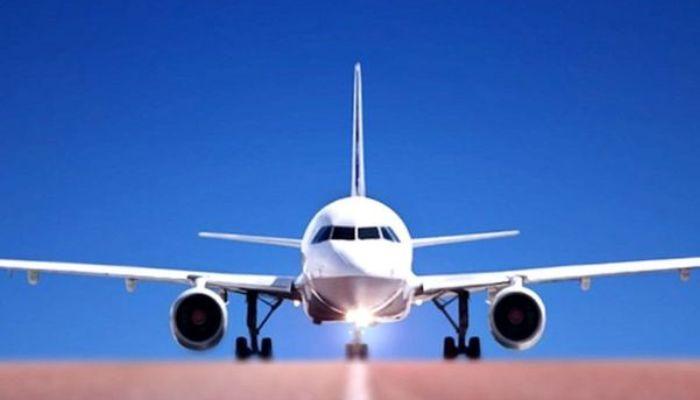Airlines in Nigeria are facing low patronage across various routes as a result of increase in air fares, despite the insufficient number of aircraft at the nation’s airports.
With two major airlines, Aero and Dana Air suspending operations last week over high operating costs, the fewer fleet run by other airlines are still not fully utilised as some passengers shun air travel over 60 percent rise in economy class tickets.
BusinessDay’s investigation showed that out of over 60 aircraft operated by 10 airlines in Nigeria, only about 31 aircraft are now flown by eight airlines as some aircraft are either grounded by the Nigeria Civil Aviation Authority or are in other countries on maintenance.
A visit by BusinessDay to Murtala Muhammed Airport Terminal Two, Lagos, on Tuesday, showed few passengers scattered across the terminal processing their boarding passes, while others booked tickets to frequently visited destinations such as Abuja, Port Harcourt, Owerri and Asaba.
By 4pm on Tuesday evening, airlines were still selling tickets for flights scheduled to operate at 6pm, while staff of airlines moved round the terminal in search of passengers looking to book tickets, yet economy class tickets from Lagos to Abuja, Port Harcourt, Kano, Owerri and Asaba were selling for between N70,000 and N120,000 as against the N50,000 base fares charged by airlines.
For instance, while economy class one-way Lagos-Kano flight operated by Azman Air cost N90,000, Max Air charged N70,000 on the same route.
Even low-cost carriers like Green Africa were offering N87,000 for one-way Lagos-Abuja tickets.
Fares on other routes are not any different with fares increasing and some sold for above N100,000.
“We are not really selling as many tickets as we expected. We thought with the suspension of flight services by two major carriers, Dana Air and Aero, the airlines still operating would be having fully booked flights but sadly, this is not happening,” a travel agent for Air Peace who craved anonymity told BusinessDay.
The travel agent said despite the low patronage, airlines would not reduce fares because they are struggling with the high cost of aviation fuel.
Findings reveal that Azman Air is grappling with operational challenges related to sourcing of aviation fuel. The airline has cut its daily Lagos-Abuja flights to twice weekly.
On Tuesday, Azman Air had to delay its Lagos-Kano flight for over six hours because of aviation fuel.
As a way of saving operating costs, some airlines are now reconsidering the type of aircraft to be deployed. This is because of the huge costs expended on the purchase of aviation fuel
To fill the belly tank of some aircraft type is currently gulping about N70 million daily, whereas the use of smaller airplanes may save airlines up to N20 million daily on fuel consumption.
BusinessDay’s findings show that aviation fuel currently cost N830 per litre on Tuesday.
Obi Mbanuzuo, chief commercial officer, Green Africa, told BusinessDay that some routes saw increased demand since the suspension of flight services by Dana and Aero, adding that the remaining operators could easily replace the lost capacity as both airlines that recently stopped operating did not really have any unique routes.
“The remaining operators can easily satisfy demand,” he said.
Mbanuzuo said for Green Africa, demand for Owerri, Enugu and Port Harcourt had increased, with other destinations remaining the same.
“I have cut down on my frequent business travels except they are very important. The cost of airfares now is no longer affordable for the average Nigerian. This will affect our overhead costs, so we have suspended most business travels for now,” Gbenga Mustapha, a traveller and businessman, told BusinessDay.
Read also: Explainer: How rising costs push Nigerian airlines to near collapse
Gina Nnaji, an independent travel agent, said most of her corporate clients had cancelled travel bookings for now because of the high fares.
“The current situation is affecting travel agents, especially those of us handling corporate clients. These people are cancelling bookings because they can’t afford to pay air fares for their staff to travel for business meetings, trainings or other engagements,” Nnaji said.
Sindy Foster, principal managing partner at Avaero Capital Partners, who is a regular traveller, said airlines would have to increase prices to be able to afford fuel and buy dollars at the parallel market.
“Spare parts and maintenance costs are often in dollars. So the lack of dollars and the high cost of dollars will inevitably affect the speed with which airlines can repair aircraft and the cost of those repairs,” Foster said.
She, however, said that while the situation is outside of the control of the airlines, they can however take mitigating steps to reduce the impact by increasing fares, reducing costs, reducing or consolidating schedules, adding or increasing ancillary charges, bulk purchasing, hedging, extending their product offerings, collaboration and partnership, among others.
Join BusinessDay whatsapp Channel, to stay up to date
Open In Whatsapp





